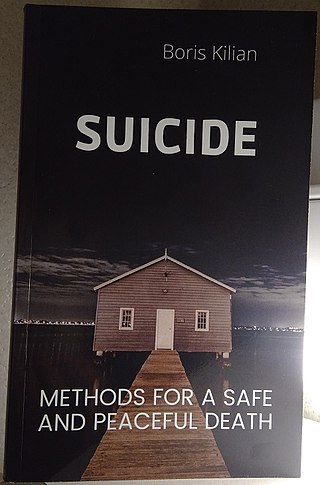Advocacy of suicide
Existential viewpoint From Wikipedia, the free encyclopedia
Advocacy of suicide, also known as pro-suicide, has occurred in many cultures and subcultures.
East Asian cultures
Confucianism holds that one should give up one's life, if necessary, either passively or actively, for the sake of upholding the cardinal moral values of ren (altruism) and yi (righteousness).[1] Which is referred as "Death with Dignity" dying for a greater cause.
Seppuku was a Japanese practice of ritual suicide by disembowelment. The Japanese military during World War II encouraged and glorified kamikaze attacks, and Japanese society as a whole has been described as "suicide-tolerant" (see Suicide in Japan).
Internet
Summarize
Perspective
Advocacy of suicide has also taken place over the Internet. A study by the British Medical Journal found that Web searches for information on suicide are likely to return sites that encourage, and even facilitate, suicide attempts.[2] While pro-suicide resources were less frequent than neutral or anti-suicide sites, they were nonetheless easily accessible.[3] There is some concern that such sites may push the suicidal person over the edge.[4] Some people form suicide pacts with people they meet online.[5] Becker writes, "Suicidal adolescent visitors risk losing their doubts and fears about committing suicide. Risk factors include peer pressure to commit suicide and appointments for joint suicides. Furthermore, some chat rooms celebrate chatters who committed suicide."[6]
William Francis Melchert-Dinkel, 47 years old in May 2010, from Faribault, Minnesota, a licensed practical nurse from 1991 until February 2009, stands accused of encouraging people to die by suicide while he watched voyeuristically on a webcam.[7][8][9][10] He allegedly told those contemplating suicide what methods worked best, that it was okay to die by suicide, that they would be better in heaven, and/or entered into suicide pacts with them.[7][11] Dinkel was charged with two counts of assisting suicide, for allegedly encouraging the suicides of a person in Britain in 2005 and another person in Canada in 2008.[7][12]
Suzy's Law would, in the US, ban sites that provide information on suicide methods or otherwise assist suicide.[13] There have been some legal bans on pro-suicide web sites, most notably in Australia, but arguably such bans merely increase awareness of such sites and encourage site owners to move their sites to different jurisdictions.[14]
See also
- alt.suicide.holiday
- Sanctioned Suicide
- Altruistic suicide — a suicide that is done for the benefit of others
- Church of Euthanasia
- Human extinction
- Philosophy of suicide
- Right to die
- Suicide prevention
- Suicide is Painless
- Blue Whale Challenge
References
Wikiwand - on
Seamless Wikipedia browsing. On steroids.


